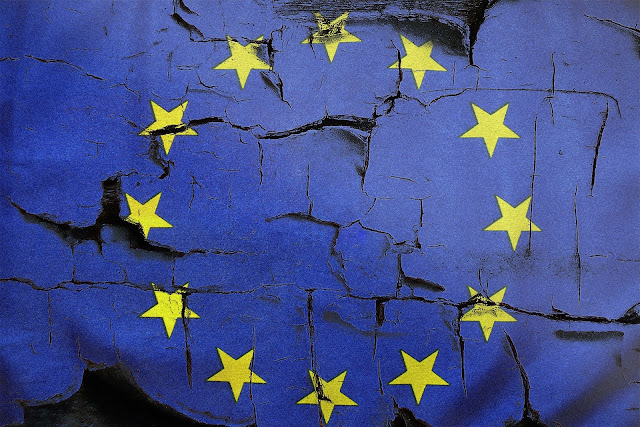POST BREXIT BRITAIN: The Geopolitics Of Post-Brexit Britain – Analysis
POST BREXIT BRITAIN: The Geopolitics Of Post-Brexit Britain – Analysis
By Iain Fraser – Consultant Editor, GEOPoliticalMatters.com
European News & Media Centre Málaga (Remote)
The Geopolitics Of Post-Brexit Britain [FPRI] Analysis
The Foreign Policy Research Unit (FPRI) has published an article: The Geopolitics Of Post-Brexit Britain written Geoffrey Stone which largely draws on the author’s previous work, specifically: The Geopolitics of Anglo-Irish Relations in the 20th Century.
Sloan says the greatest failure of the European referendum campaign in 2016, [which can be attributed to both sides] was the inability to articulate an understanding of Britain’s geopolitical relationship with Europe. He qualifies his Geopolitics as being “classical” Geopolitics i.e. the confluence of geography, history, and strategy rather than the more commonplace synonym for mere international rivalry.
It goes on to draw attention to certain Geographical patterns of political history. It fuses spatial relationships and historical causation. It can produce explanations that suggest the contemporary and future political relevance of various geographical configurations.
What sets Geopolitics apart is that it does not obey the artificial boundaries of disciplinary knowledge; classical geopolitics embraces a synthetic approach to address policy problems and issues. Furthermore, the problems and issues themselves do not respect those artificial boundaries, nor do the solutions.
The British thinker responsible for formulating geopolitical perspectives that still have pertinence to Britain’s future relationship with Europe was Sir Halford Mackinder. He was that rare beast in British public life: a polymath. He set up the School of Geography at Oxford, and founded what was to become the University of Reading in 1926. He was also the second Director of the London School of Economics.
In 1919, he was appointed British High Commissioner to South Russia by then-Foreign Secretary Lord Curzon. He was elected to the House of Commons and between 1910 and 1922 served as a Scottish Unionist MP for a constituency in Glasgow.
In 1902, he published a book titled, Britain and the British Seas. It was one of his seminal texts that articulated the nature of the geopolitical relationship between the British Isles and Europe. This analysis has renewed relevance as a consequence of the 2016 “Brexit” poll result. For Mackinder, the geographical starting point of the relationship was the south-east coast of England. This area is both proximate to and opposite what he called the “linguistic frontier of Europe.” At this frontier, there was a confluence between what he described as the Teutonic and Romance peoples. These two streams of influence had geographical expression in the form of the Rhine River and the Seine River and its estuary.
Uniquely, both of these influences had shaped Britain: “To the Teutonic – Easterling and Norsemen – England owes her civil institutions and her language; to the peoples of the west and south, her Christianity and her scholarship.”
Mackinder identified the geographical pattern of political history: “Britain is part of Europe, but not in it.” In summary, the relationship is framed by a geopolitical paradox. He expressed the granular detail in the following way: “Great consequences lie in the simple statements that Britain is an island group, set in an ocean, but off the shores of the great continent; that the opposing shores are indented; and that the domain of the two historic races come down to the sea precisely at the narrowest strait between the mainland and the island.”
This analysis still has pertinence 118 years later. Analytical terms change, but, whether we say France and Germany or the prosperous North and the debt-burdened South or, like Mackinder, the Teutonic and Romance peoples, the same geopolitical point is relevant; it is still the great ports and the hinterlands of the Elbe, the Rhine, the Scheldt and the Seine, and the British archipelago that mutually shape and impact each other. Click Here to read the full article
About Geoffrey Sloan
Geoffrey Sloan is an Associate Professor in the Department of Politics and International Relations at the University of Reading. Formerly, Head of the Strategic Studies and International Affairs Department at Britannia Royal Naval College, Dartmouth. He has also been a Visiting Professor at the United States Naval Academy, Annapolis and a Defence Fellow at St Antony’s College Oxford. He has published three books of Geopolitics. His latest book titled Geopolitics, Geography and Strategic History was published by Routledge in March 2017. It won the Stratfor Prize for Geopolitical analysis in October 2017.
About the Foreign Policy Research Unit
The Foreign Policy research Unit (FPRI) is dedicated to producing the highest quality scholarship and non-partisan policy analysis focused on crucial foreign policy and national security challenges facing the United States. We educate those who make and influence policy, as well as the public at large, through the lens of history, geography, and culture. More information








